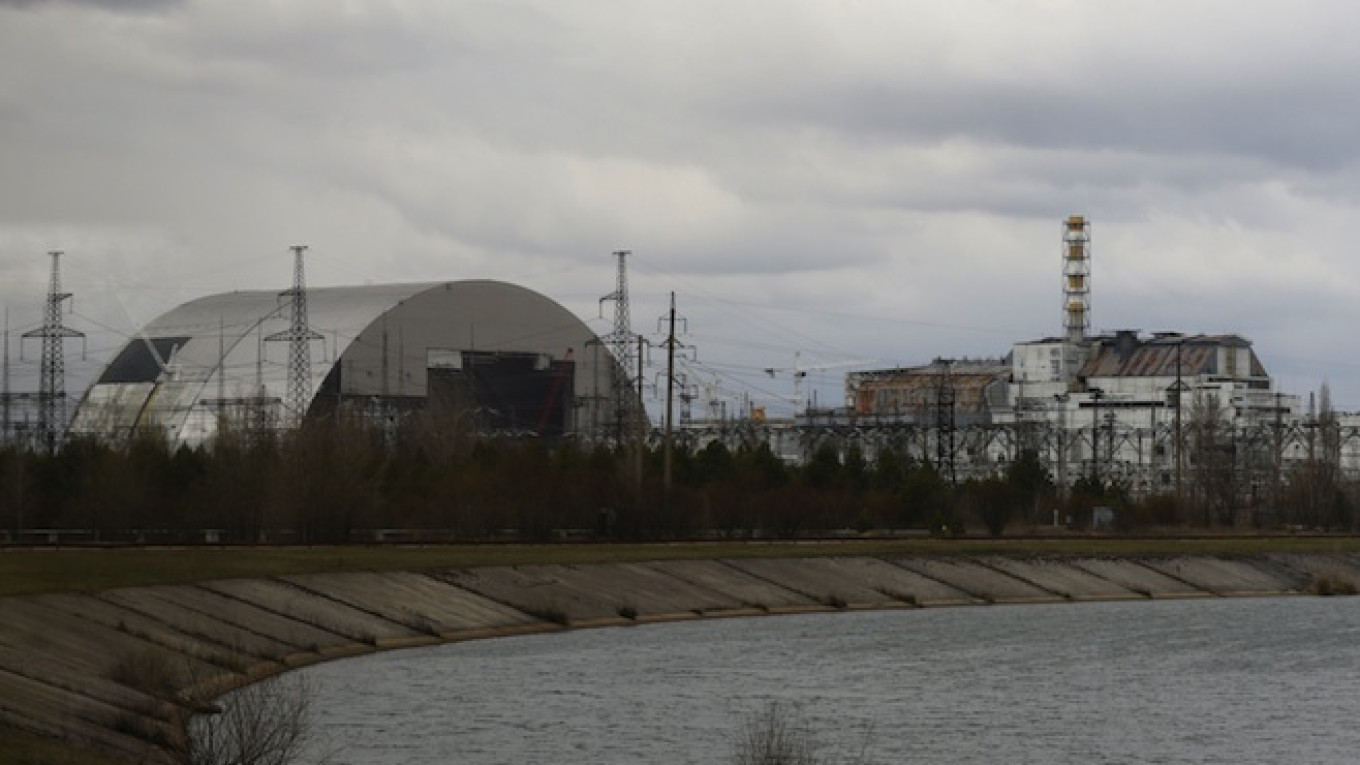LONDON — The world's leading powers said Wednesday that a protective cover over the collapsed Chernobyl nuclear power plant would be completed by November 2017, although they were still short of funds to finish the project.
Jochen Flasbarth, Germany's state secretary for the environment representing the Group of Seven major economies, said "concrete pledges" were now in place for 530 million euros ($590 million) of the remaining 650 million euros needed to complete the "sarcophagus."
He said he was confident that countries including Russia and China would provide the rest of the money following promises by both to do so.
"I am very relieved, we have created a big success this afternoon," Flasbarth said. "It is now clear the international community takes responsibility. The problem that the work in Chernobyl might have been stopped for a while is off the table.
The explosion and fire at the Chernobyl plant on April 26, 1986 was the world's worst nuclear accident.
A power surge led to a series of blasts, which blew off the reactor's heavy steel and concrete lid sending a cloud of radioactive dust billowing across northern and western Europe, and as far as the eastern United States.
A make-shift cover was built in the six months after the explosion to protect the environment from further radiation. But it was only expected to last a maximum of 30 years and has already had to have cracks repaired.
The new convex structure is being built over the original "sarcophagus" and the hope is it will allow the old reactor to eventually be dismantled.
It is estimated that the whole "Shelter Implementation Plan" will have cost a total of 2.1 billion euros by the time it is finished. On Wednesday, the G7 and European Commission confirmed they would pump in an additional 165 million euros while other countries would chip in another 15 million.
The European Bank for Reconstruction and Development, where the meeting was held, is the biggest overall contributor. It has provided 350 million euros, and will cover any shortfall.
Donors had hoped all the funding would be secured by Wednesday. But failure to get the final sign-offs from the likes of Russia and China left them short 85 million euros.
"We heard from the Russian representative that it [proposal to provide funding] is already on the way to the [Russian] president," Flasbarth said.
A Message from The Moscow Times:
Dear readers,
We are facing unprecedented challenges. Russia's Prosecutor General's Office has designated The Moscow Times as an "undesirable" organization, criminalizing our work and putting our staff at risk of prosecution. This follows our earlier unjust labeling as a "foreign agent."
These actions are direct attempts to silence independent journalism in Russia. The authorities claim our work "discredits the decisions of the Russian leadership." We see things differently: we strive to provide accurate, unbiased reporting on Russia.
We, the journalists of The Moscow Times, refuse to be silenced. But to continue our work, we need your help.
Your support, no matter how small, makes a world of difference. If you can, please support us monthly starting from just $2. It's quick to set up, and every contribution makes a significant impact.
By supporting The Moscow Times, you're defending open, independent journalism in the face of repression. Thank you for standing with us.
Remind me later.


